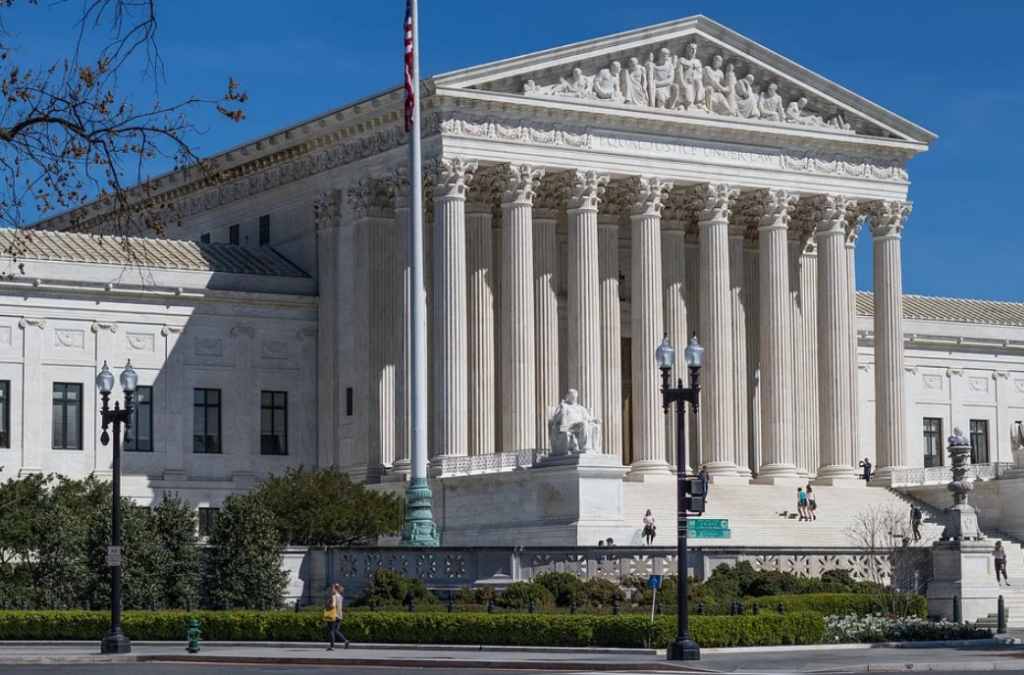Supreme Court judges voted on Tuesday 5 to 4 to leave in place a ban on evictions that was put in place by the Centers for Disease Control and Prevention to stop the spread of the coronavirus pandemic and prevent people from being made homeless.

The CDC moratorium had just been extended by the White House until the end of July, though the Biden administration said that would be the last time.
A coalition of real estate companies, landlords and real estate trade associations had convinced U.S. District Judge Dabney Friedrich earlier this year that the CDC does not have the authority to impose a moratorium. However, Judge Freidrich left the ban in place pending a government appeal. A panel of judges at the U.S. Court of Appeals for the D.C. Circuit later kept the ban in place, saying it thought the government would likely win its appeal.
The Washington Post reported that Supreme Court Chief Justice John G. Roberts Jr., fellow conservative Brett M. Kavanaugh, and liberals Stephen G. Breyer, Sonia Sotomayor and Elena Kagan all voted to keep the stay in place.
Justices Clarence Thomas, Samuel A. Alito Jr. Neil M. Gorsuch and Amy Coney Barrett said they would have lifted the stay, which would have struck down the moratorium.
Neither side explained its reasoning in the decision, but Judge Kavanaugh in a separate note said that while he agreed the CDC had exceeded its authority, now was not the time to lift the ban on evictions due to its imminent expiration.
“Because the CDC plans to end the moratorium in only a few weeks, on July 31, and because those few weeks will allow for additional and more orderly distribution of the congressionally appropriated rental assistance funds,” the stay should remain in place, Kavanaugh said.
Judge Kavanaugh said that in his view, any further extension of the ban would need to be justified by “clear and specific congressional authorization”, which could only happen through new legislation.
The vote came just days after CDC Director Rochelle Walensky decided to extend the eviction ban from June 30 until July 31. At the time, she said that would be the last time the ban would be extended.
The CDC eviction ban, which has been in place since September 2020, has been hugely controversial, causing both corporate housing providers and individual landlords to miss out on millions of dollars in missed rental payments. Some landlords complain they have not received any rent in other a year. In total, landlords have had to absorb out $13 billion in unpaid rent each month since the moratorium has been in place, RealtorMag reported.
One of the most vocal critics of the ban in recent months has been the National Association of Realtors, whose President Charlie Oppler stated Tuesday that he was most concerned about “mom-and-pop property owners” that have been pushed close to financial ruin as they try to keep their properties in shape and pay their mortgages and taxes without making any income on them.
“With the pandemic waning and the economy improving, it is time to restore the housing sector to its healthy, former function,” Oppler said. “Property owners also deserved this clarity from our federal court system regarding property rights in America to avoid similar financial harm in the future.”
Oppler also called for more efforts to be made to distribute rental assistance more quickly.
A total of $46.55 billion has since been allocated to states in President Biden’s latest COVID-19 rescue package, but the distribution of that money has been slow. The NAR says that with states still scrambling to disburse the funds, housing providers are struggling to cope with their ongoing losses.
“This ruling keeps in place certainty for tenants for another month while bringing clarity to struggling housing providers,” Oppler continued in his statement. “It is now critical that the nearly $50 billion in rental assistance NAR helped secure gets out to those who need it most.”
For its part, the White House has been stepping up its efforts to accelerate the disbursal of federal aid to renters in an effort to prevent a wave of evictions. Leading those efforts is Gene Sperling, who was hired by the Biden administration to oversee the implementation of its $1.9 trillion federal relief package, which includes the billions of dollars allocated for rental assistance.
At the Supreme Court hearing, the coalition of landlords, realtors and associations argued that the CDC had gone too far with the eviction ban, and said that it is no longer needed.
“If Americans can safely gather together indoors without adhering to the most basic COVID-19 precautions, then there is no longer any public-health rationale for the moratorium,” they said in their brief to the Supreme Court.
“The CDC’s continued insistence that public-health concerns necessitate that landlords continue to provide free housing for tenants who have received vaccines (or passed up the chance to get them) is sheer doublespeak.”
On behalf of the government, Acting Solicitor General Elizabeth B. Prelogar said the CDC had the authority to implement the ban and argued that its judgment should be trusted as it continues to try and contain the pandemic. She warned that many children are still not vaccinated and that new variants of the COVID-19 virus have emerged.
Further, Prelogar said the hardship felt by landlords is only temporary and that Congress has appropriated almost $50 billion in rental assistance. She pointed out that local governments are free to use the funds to pay up to 12 months of back rent for eligible renters. “The funds are payable directly to landlords,” she said.